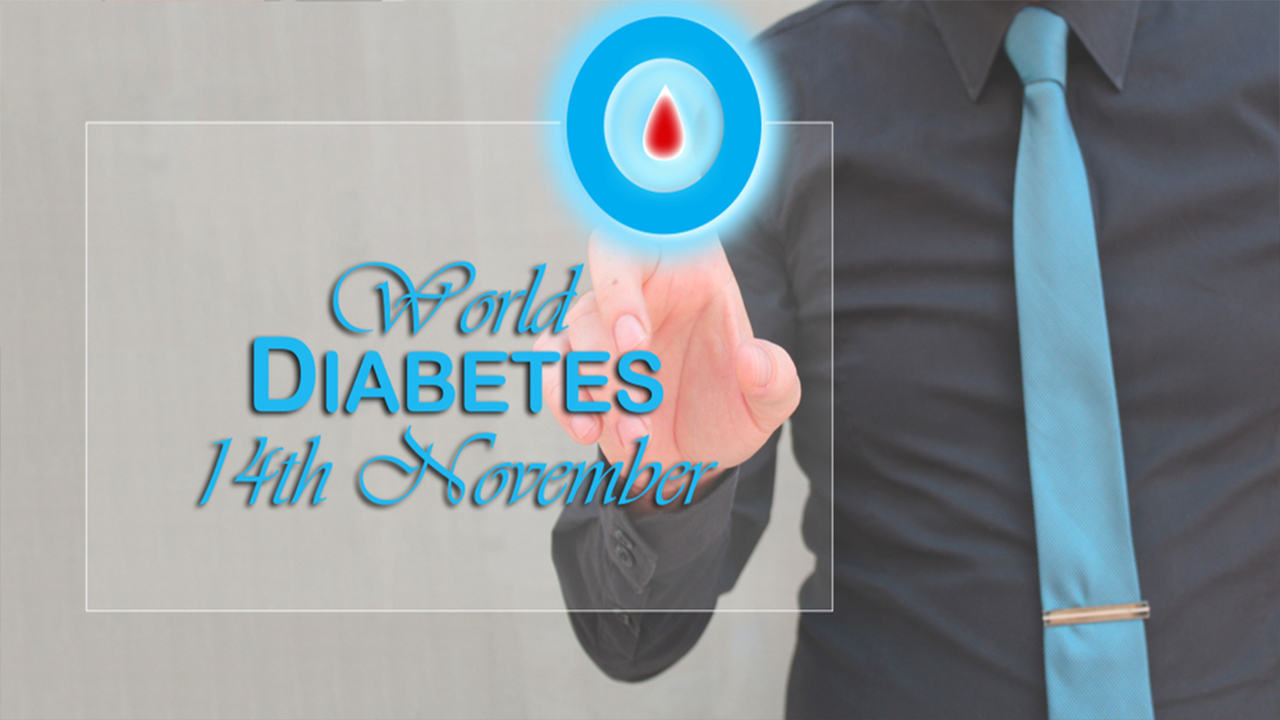Diabetes is a chronic disease that occurs when the pancreas doesn't produce enough insulin, or when the body can't adequately utilize the insulin it produces. This prompts an increased level of glucose in the blood called hyperglycemia.
Diabetes is a significant reason for visual impairment, kidney failure, coronary failure, stroke, and lower limb amputation. Healthy eating routine, physical activity, and dodging tobacco use can stop or postpone type 2 diabetes. Moreover, diabetes can be dealt with and its results dodged or postponed with medicine, standard screening, and treatment for complications.
Internationally, an expected 422 million adults were living with diabetes in 2014, contrasted with 108 million out of 1980. The worldwide prevalence of diabetes has almost multiplied since 1980, ascending from 4.7% to 8.5% in the adult populace. This mirrors an expansion in related danger factors, for example, being overweight or obese.
Over the previous decade, diabetes prevalence has risen quicker in low and developing nations than in developed nations.
In 2007 General Assembly received goal 61/225 assigning 14 November as World Diabetes Day. The report perceived "the dire need to seek after multilateral endeavors to advance and improve human wellbeing, and give admittance to treatment and medical care training."
The goal likewise urged the Member States to create public strategies for the anticipation, treatment, and care of diabetes in accordance with the supportable advancement of their medical care frameworks.
There are different types of Diabetes:
Type 2 diabetes
- Also known as non - insulin dependent or adult onset diabetes
- It results from the body's insufficient utilization of insulin.
- Most individuals with diabetes have type 2 diabetes and it generally is the aftereffect of overabundance body weight and no physical activity.
- This kind of diabetes was seen distinctly in grown-ups yet it is presently additionally happening progressively every now and again in youngsters.
Type 1 diabetes
- Also called insulin-dependent or juvenile diabetes.
- It is described by inadequate insulin production and requires day by day usage of insulin.
- Neither the reason for Type 1 diabetes nor the way to stop it is known.
- Manifestations incorporate excessive urine (polyuria), thirst (polydipsia), excessive hunger (polyphagia), weight loss, vision changes, and fatigue.
- These side effects may happen unexpectedly.
Gestational diabetes
- It sets in during pregnancy due to pressure on the liver leading to insufficient production of insulin.
- Gestational diabetes is hyperglycemia with blood glucose levels over average however beneath those symptomatic of diabetes.
- Ladies with gestational diabetes are at an expanded danger of intricacies during pregnancy and at labor.
- These ladies and perhaps their youngsters are likewise at an expanded danger of type 2 diabetes later on.
- Gestational diabetes is analyzed through pre-birth screening, as opposed to through detailed manifestations.
Impaired glucose tolerance and impaired fasting glycemia
- Impaired glucose tolerance (IGT) and impaired fasting glycemia (IFG) are intermediate conditions in the transition between normality and diabetes.
- Individuals with IGT or IFG are in high danger of advancing to type 2 diabetes.
How does diabetes affect the body?
Over the long haul, diabetes can harm the heart, veins, eyes, kidneys, and nerves. Adults with diabetes have a few overlap expanded danger of respiratory failures and strokes.
- Along with diminished blood flow, neuropathy (nerve harm) in the feet expands the opportunity of foot ulcers, contamination, and the inevitable requirement for limb amputation.
- Diabetic retinopathy is a significant reason for visual impairment and happens because of long haul aggregated harm to the little veins in the retina. Diabetes is the reason for 2.6% of worldwide blindness.
- Diabetes is among the main sources of kidney failure.
How to prevent diabetes?
Basic ways of life measures have been demonstrated to be compelling in forestalling or postponing the beginning of type 2 diabetes are:
-
Accomplish and keep up a sound body weight;
-
Be genuinely active – doing at any rate 30 minutes of normal, moderate-power movement on most days. Greater action is needed for weight control;
-
Eat a sound eating regimen, evading sugar and saturated fats; and
-
Keep away from tobacco use – smoking builds the danger of diabetes and cardiovascular disease.
Treatment of diabetes
- Early detection through a glucose test
- Healthy diet
- Physical activity
- Bringing down blood glucose levels and the degrees of other realized danger factors that harm blood vessels
- Tobacco use to be avoided
- Individuals with type 1 diabetes require insulin
- Individuals with type 2 diabetes can be treated with an oral prescription, however, may likewise require insulin;
- Blood pressure control; and
- Foot care (tolerant self-care by keeping up foot cleanliness; wearing fitting footwear; looking for proficient consideration for an ulcer the executives; and standard assessment of feet by heallth experts).
Other costs sparing mediations include:
- Screening and treatment for retinopathy (which causes visual impairment);
- Blood lipid control (to direct cholesterol levels);
- Screening for early indications of diabetes-related kidney illness and treatment.
References:
https://www.un.org/en/observances/diabetes-day

 Diabetes is a significant reason for visual impairment, kidney failure, coronary failure, stroke, and lower limb amputation. Healthy eating routine, physical activity, and dodging tobacco use can stop or postpone type 2 diabetes.
Diabetes is a significant reason for visual impairment, kidney failure, coronary failure, stroke, and lower limb amputation. Healthy eating routine, physical activity, and dodging tobacco use can stop or postpone type 2 diabetes.









.jpeg)



.jpeg)

.jpg)





.png)





.jpg)
